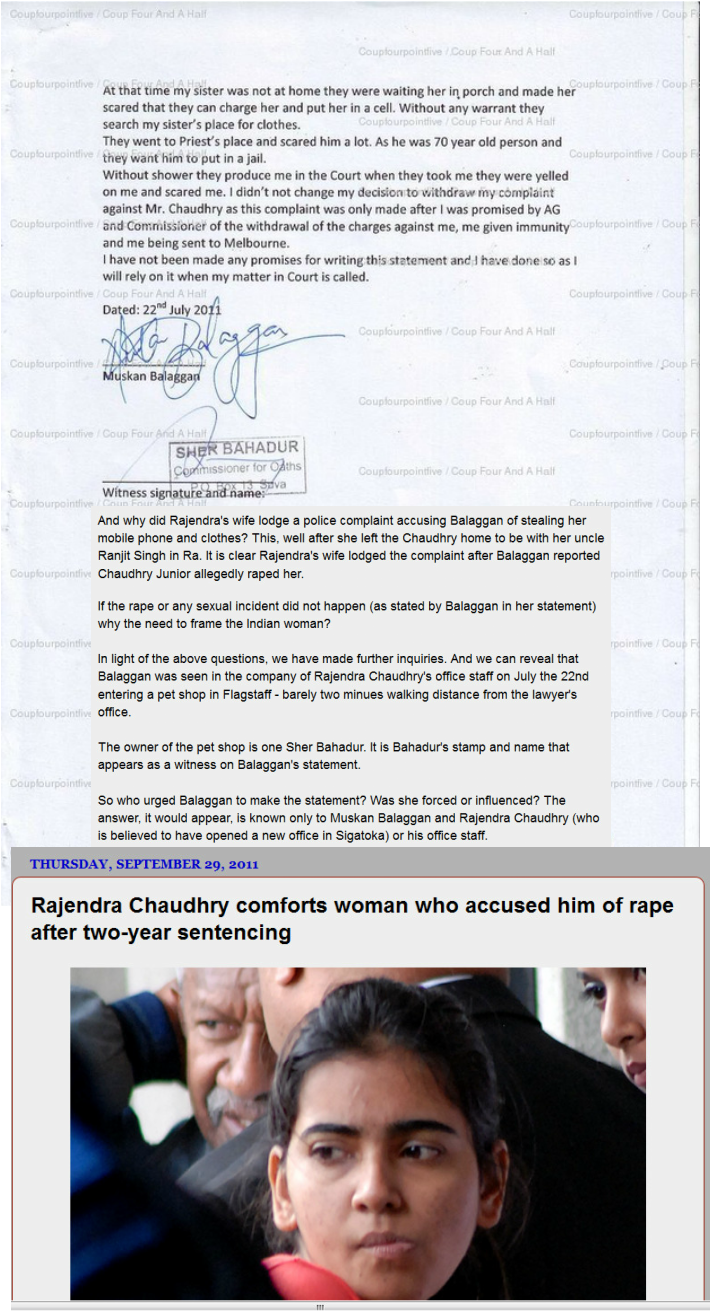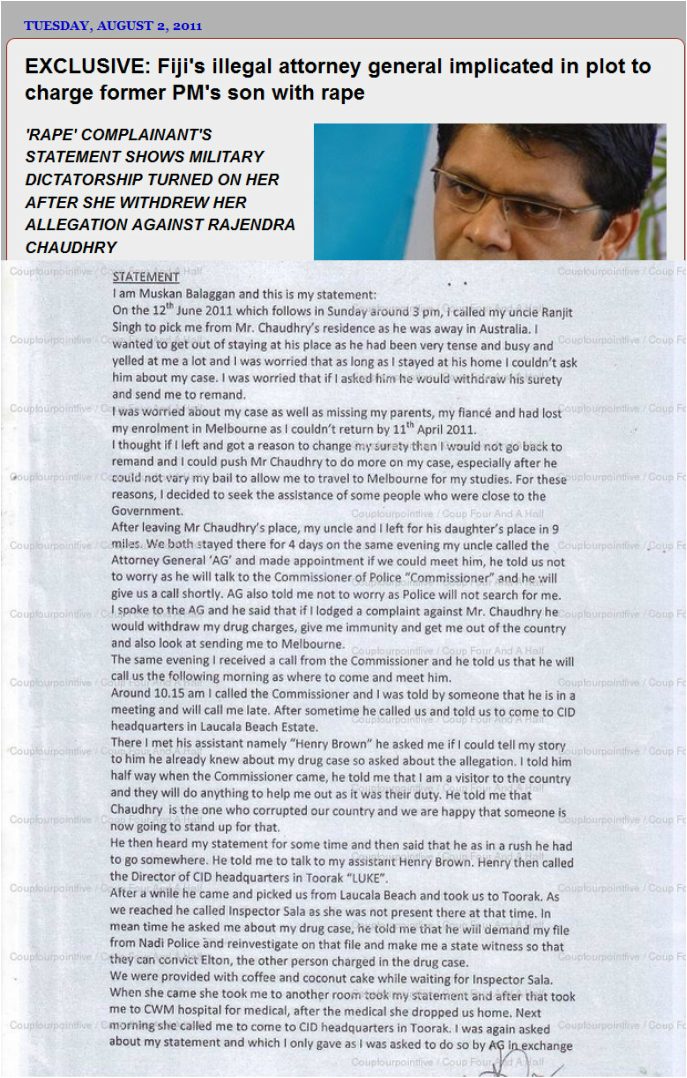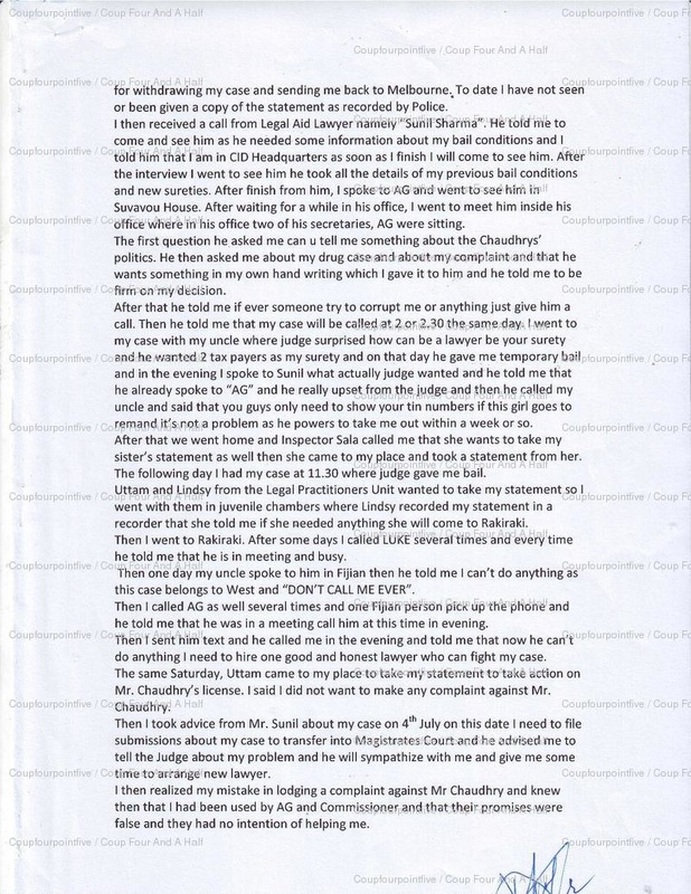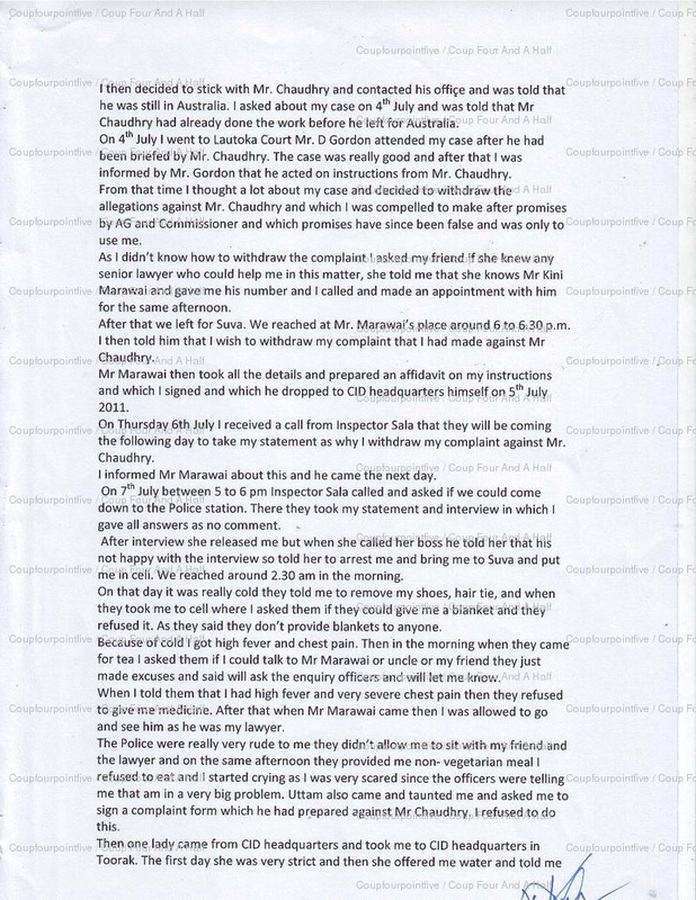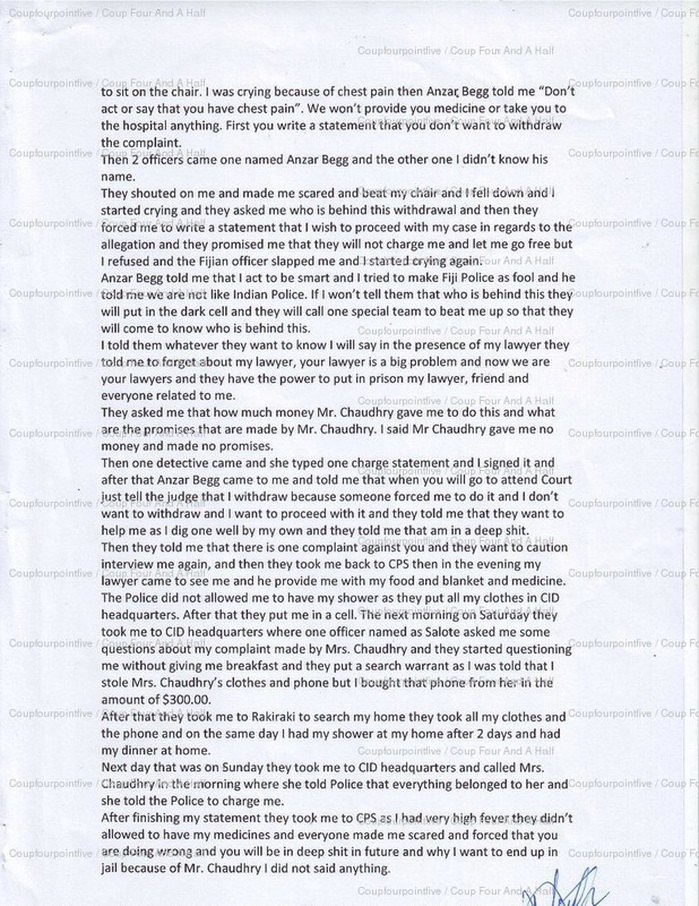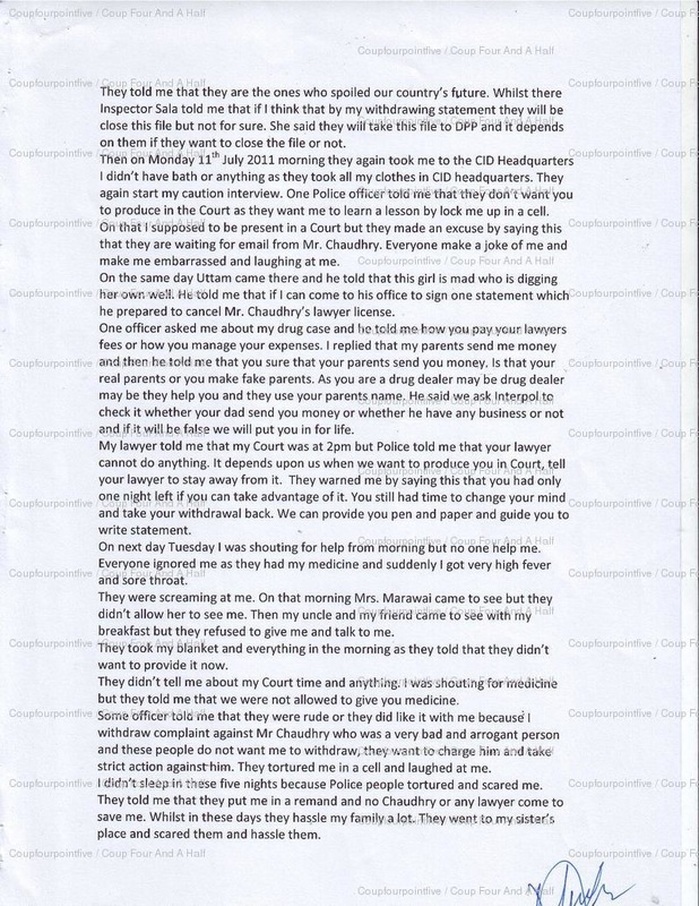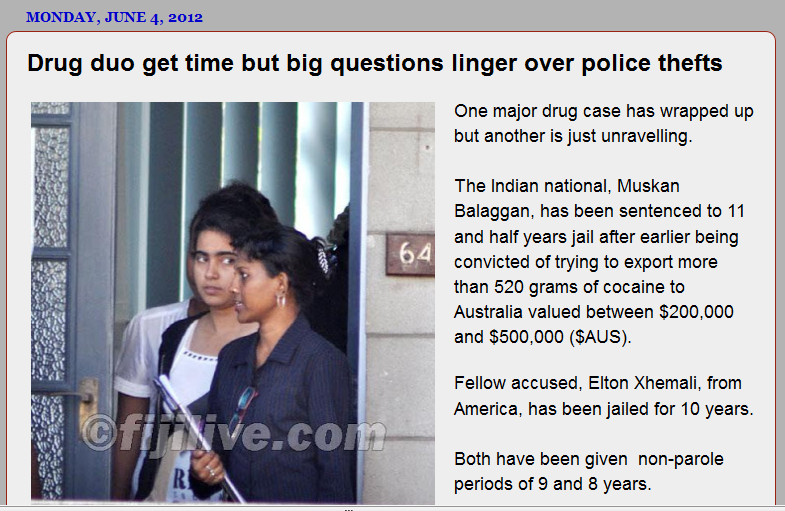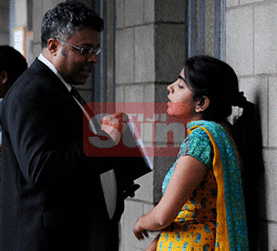 Rajendra Chaudhry and Muskan Balaggan
Rajendra Chaudhry and Muskan Balaggan "On the 26th January 2011, one Muskan Balaggan (hereinafter referred to as "MB", an Indian national, was arrested at Nadi Airport when she was on route from Melbourne, Australia to India, and was charged with a drug trafficking offence.
She appeared in the Nadi Magistrates Court on 11th February 2011 in answer to the drug charge at which time, RC [Rajendra Chaudhry] appeared for her and offered himself as a surety to fulfil her bail conditions.
It is in evidence that he also offered to accommodate MB in his family home in Suva, and MB in fact moved into the home where RC lived with his wife and young son.
On 4th July 2011, MB swore an affidavit stating that the allegations she made on 13th June 2011 were untrue and that she would withdraw such allegations. MB explained that she made those allegations when she was in an unstable state of mind and was angry that RC had gone on a holiday to Australia with his family while the drug trafficking charge against her was still pending..."
Supreme Court of Fiji explains Conflict of Interest in RAJENDRA CHAUDHRY (Petitioner) and THE CHIEF REGISTRAR (Respondent) while ruling, 22 April 2016: 'It is declared that the judgment of the Independent Legal Services Commission dated 12th September 2012 stands affirmed, and accordingly the sentence imposed on Mr. Rajendra Chaudhry by the said Commission on 5th October 2012 shall stand, and his period of suspension from legal practice will be up to 1st March 2017'
"I have read a draft of the judgment of Marsoof JA. For the reasons which he gives, I agree with the orders he proposes, and I only add a few words of my own out of deference to the Court of Appeal's view on whether Mr. Chaudhry had a conflict of interest when he represented Ms. [Muskan] Balaggan on 15 and 29 September 2011. If Ms. Balaggan had wanted to change her plea from guilty to not guilty on the charge of giving false information to a public servant, she would have had to say one of two things. Either she could have said that her original statement had been true, and that her retraction statement had been false – adding, perhaps, that the reason why she had retracted it had been because she had been pressurised into doing that by Mr. Chaudhry's supporters. Her defence in that event would have been that the information she had originally given had not been false. Or she could have said that her original statement had been false, and that her retraction statement had been true – adding that the reason why she had made her original statement had been because she had been pressurised into doing that by people who had a grudge against Mr. Chaudhry. Her defence in that event would have been that, although the information she had given had been false, she had given it under duress.
The crucial point is that even after Ms. Balaggan had decided to say that her original statement had been false and that her retraction statement had been true, Mr. Chaudhry still had a direct and obvious interest in her maintaining that account, because if she were subsequently to go back on that and say that her original statement had been true, she would have been resurrecting her allegation that Mr. Chaudhry had raped and abused her. It was his interest in her maintaining the account that her original statement had been false and her retraction statement true which gave rise to the conflict of interest, because although his personal interest was in her maintaining that account, his duty to her as her lawyer was not to encourage her to maintain or change her account, but simply to act on whatever her account was. In these circumstances, it is just not possible to say that he did not continue to have a conflict of interest once she had retracted her original statement, which was, on its ultimate analysis, the basis on which the Court of Appeal partially allowed Mr. Chaudhry's appeal.' -
- Hon. Brian Keith, JA
Whatever happened to Muskan Balaggan's Statement implicating Aiyaz Khaiyum in the plot to charge Rajendra Chaudhry; it was signed in the presence of the late Sher Bahadur, Commissioner of Oaths & owner of Pet Shop, Flagstaff, Suva, and published by Coupfourpointfive (below)
